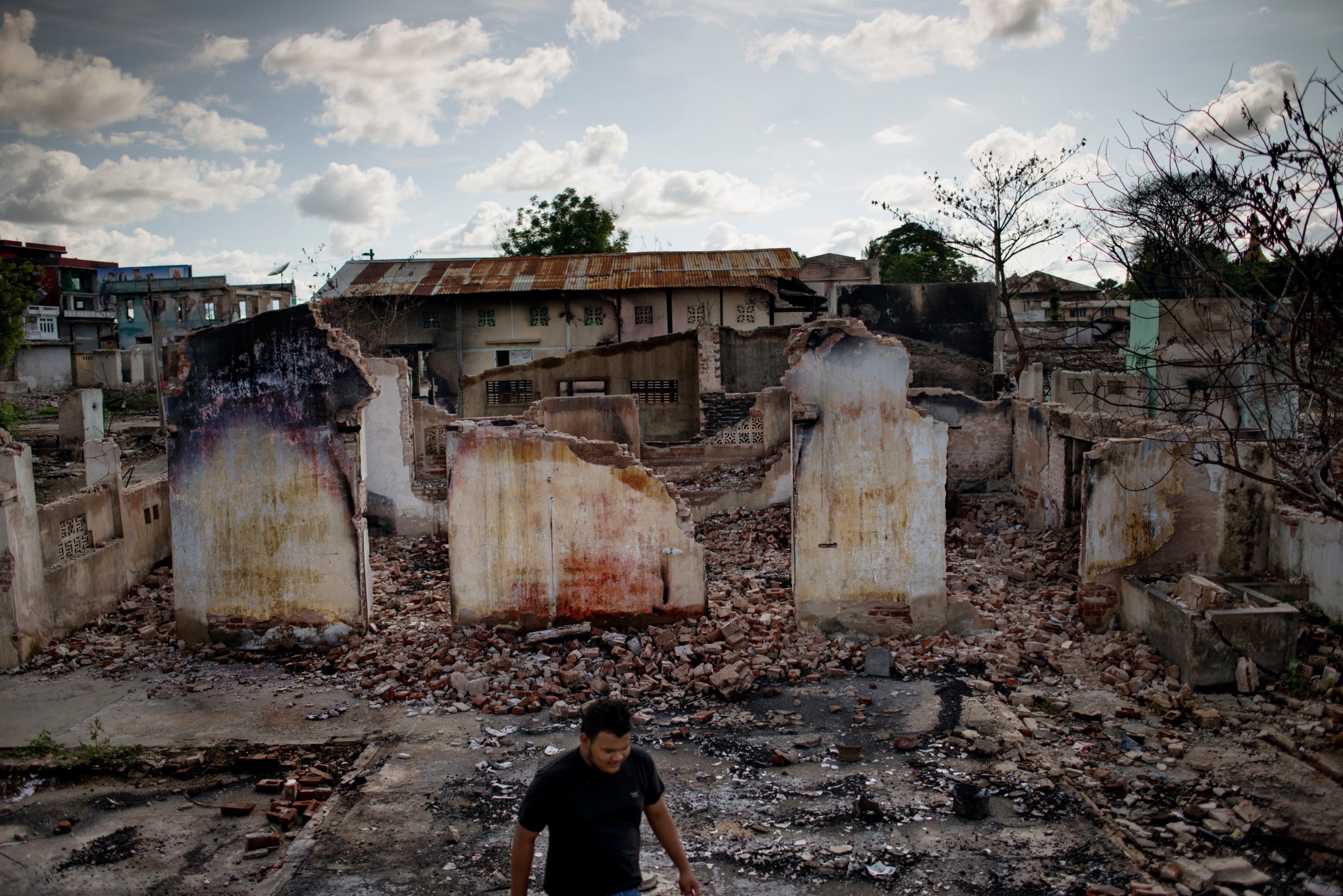
The first text message came through several days after Myo had ended his workshop. “F—g kalar,” it read, using a slur that Burmese ultra-nationalists like to apply to Muslims or others of South Asian appearance. “Why don’t you stop your work?”
It was late July, exactly one year on from a deadly bout of communal violence between Buddhists and Muslims in the northern Burmese city of Mandalay. The young activist, whose name has been changed to protect his identity, had been working on a series of peace-building initiatives between the two communities, which had fissured in the wake of several waves of violence since 2012.
The workshop had gone relatively smoothly, or so he thought. A second message, the following day, caused even more alarm. “You want to die? Why are you pressuring our monks?” Myo grew increasingly agitated. As someone openly advocating interfaith harmony in a deeply divided society he was already too conspicuous for comfort.
He thought back on the workshop. Among the group were a number of progressive monks, and he was sure the tone of the meeting chimed with their own desires for religious accord. But there had been one nun present who had seemed resentful toward him. After a session on the Buddhist concept of “right speech” — defined by Buddha as words promoting peace and happiness — she fell quiet. He knew the nun had close ties to Wirathu, the abbot of a monastery in Mandalay, who is known not for his right speech but hate speech towards Muslims.
Myo told TIME that he decided to postpone future workshops. But later that day, a third message was received. “Who the hell are you to teach our monks? Motherf—r kalar, you’re going to die,” it warned. When a final message arrived on July 26, he decided to flee Mandalay and go into hiding. “We will see you tomorrow,” it read.
During its nearly half-century of military rule, the world tended to view Burma — formally known as Myanmar — as a black-and-white case of bad junta vs. good opposition, whose most visible luminaries were Nobel Peace Prize laureate Aung San Suu Kyi and many of the country’s saffron-robed monks. But the democratization process, supported by Western countries eager to draw resource-rich Burma out of China’s hands and into theirs, has brought into the open communal divides that had previously been hidden from view. Monks, whose leadership of the September 2007 uprising against military rule won them international admiration, have become among the most vocal proponents of a view of Islam as a foreign religion whose faithful posed an existential threat to Burmese Buddhism.
Particular venom has been reserved for the stateless Muslim Rohingya minority in western Burma, who were branded interlopers from Bangladesh and subjected to several campaigns of violence since 2012 that left hundreds dead and close to 150,000 in squalid displacement camps. Suu Kyi, a world-renowned icon of democracy, has been roundly criticized for failing to condemn the pogroms — fearful that to do so would be considered tantamount to support for an increasingly maligned Muslim community in Burma, and could affect support for her among a population that has shown an alarmingly anti-Muslim streak.
Inside Burma, the upshot has been broader disenfranchisement of Muslims, with no Muslim candidates standing for Suu Kyi’s party, the National League for Democracy, in its victorious showing at the November elections that were considered such a major step in bringing democracy to Burma. Outside of the country, particularly among Western backers of the transition, many have questioned exactly what brand of democracy Suu Kyi and her colleagues, who have been largely silent on the persecution of Muslims, have fought all these years for.
Around the same time that Myo began receiving threats, a fellow interfaith activist in Mandalay was being stalked by Burmese authorities. On a Tuesday in mid-July, the cell phone of Zaw Zaw Latt, 31, a member of the Mandalay Interfaith Social Volunteer Youth Group, began to ring. The caller identified himself as a policeman and told Zaw Zaw Latt to head to a café in downtown Mandalay at 8 p.m. that evening. Several officers from the Criminal Investigation Department were waiting, and started to question him about a photo on social media of him holding a rifle. The photo dated from 2013, when Zaw Zaw Latt had traveled as part of an outreach trip to camps for displaced persons rebel-held territory in Kachin state. While there, he posed with the firearm for show.
Unhappily for Zaw Zaw Latt, the photo was picked up two years later, and he was detained and later charged under a law banning association with “unlawful” groups. Less than a week later, two other colleagues, Pwint Phyu Latt and Zaw Win Bo, from the same Mandalay interfaith network that was set up in the wake of another round of anti-Muslim violence in March 2013, were arrested on spurious charges of illegal border crossing several months before, and sent to the same jail as Zaw Zaw Latt. Border officials had testified at one hearing that the two had been permitted to cross into India, but judges dismissed their testimony.
A relative of Zaw Zaw Latt explains to TIME that at every court appearance since his arrest in July, members of an ultra-nationalist monk-led movement known locally as Ma Ba Tha had been present. “They come and observe, and they put pressure on the mother of Pwint Phyu Latt and tell her he could be in prison for seven years,” she says of an encounter she had witnessed outside a court hearing in November.
The Rohingya, Burma's Forgotten Muslims by James Nachtwey
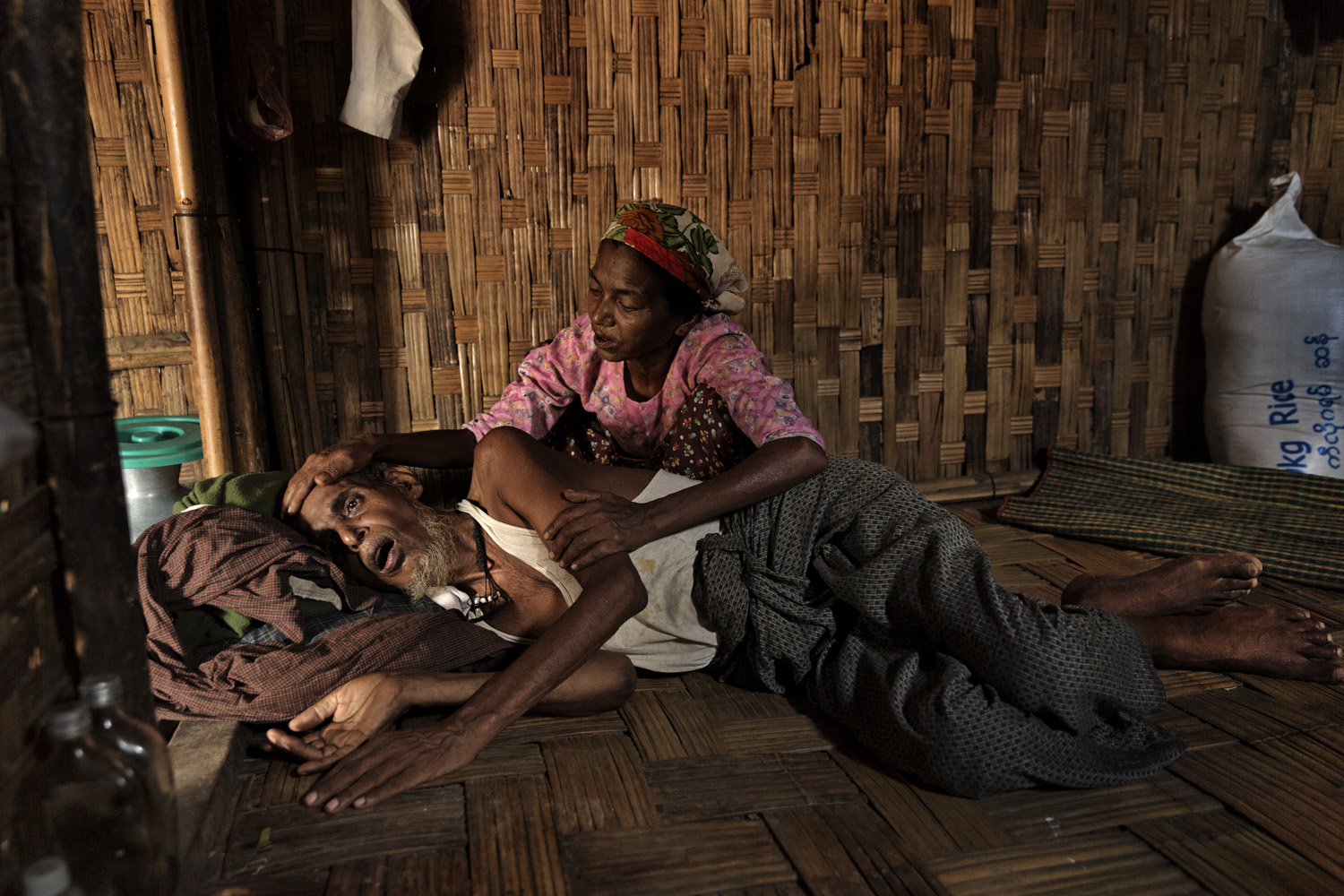
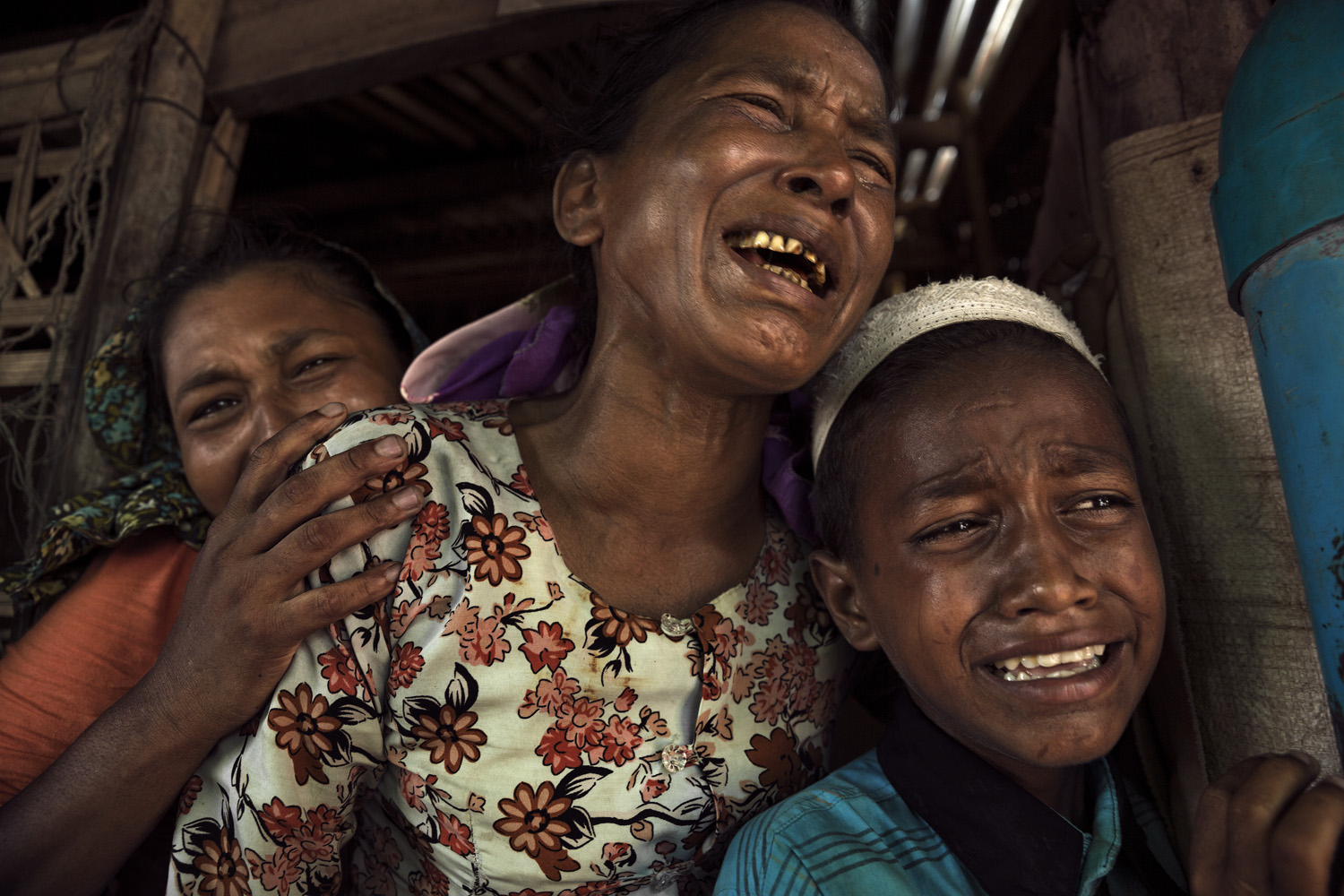
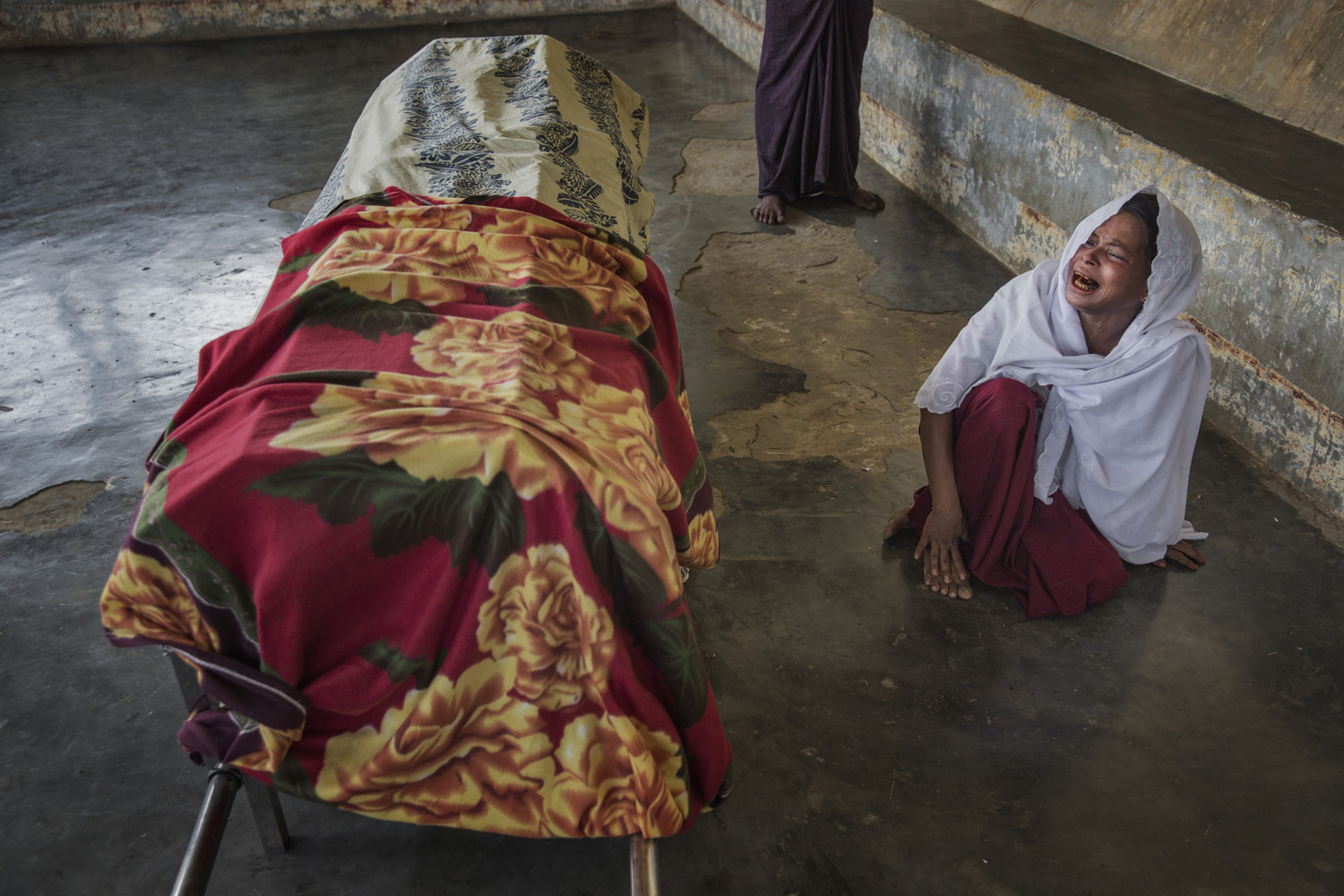
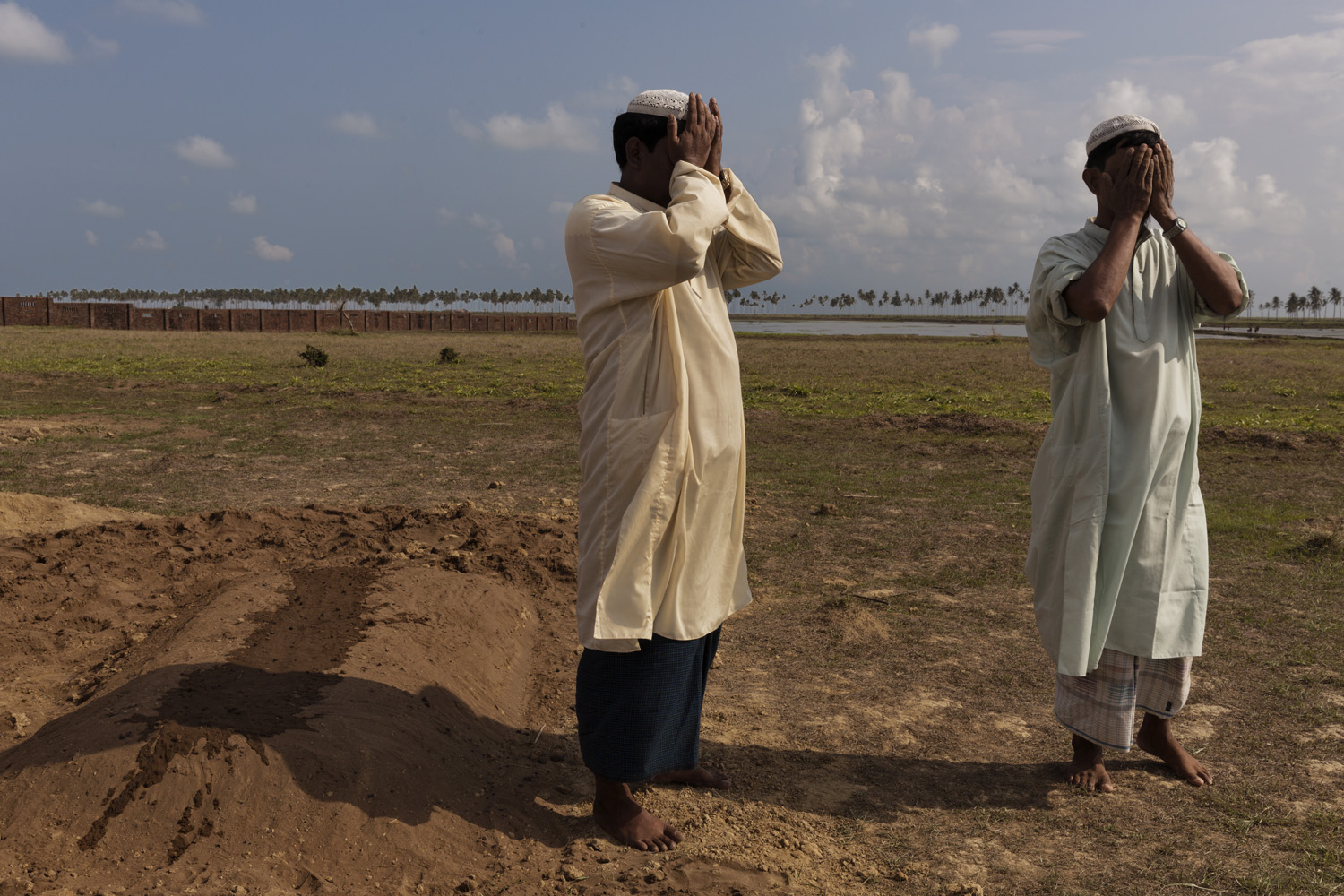
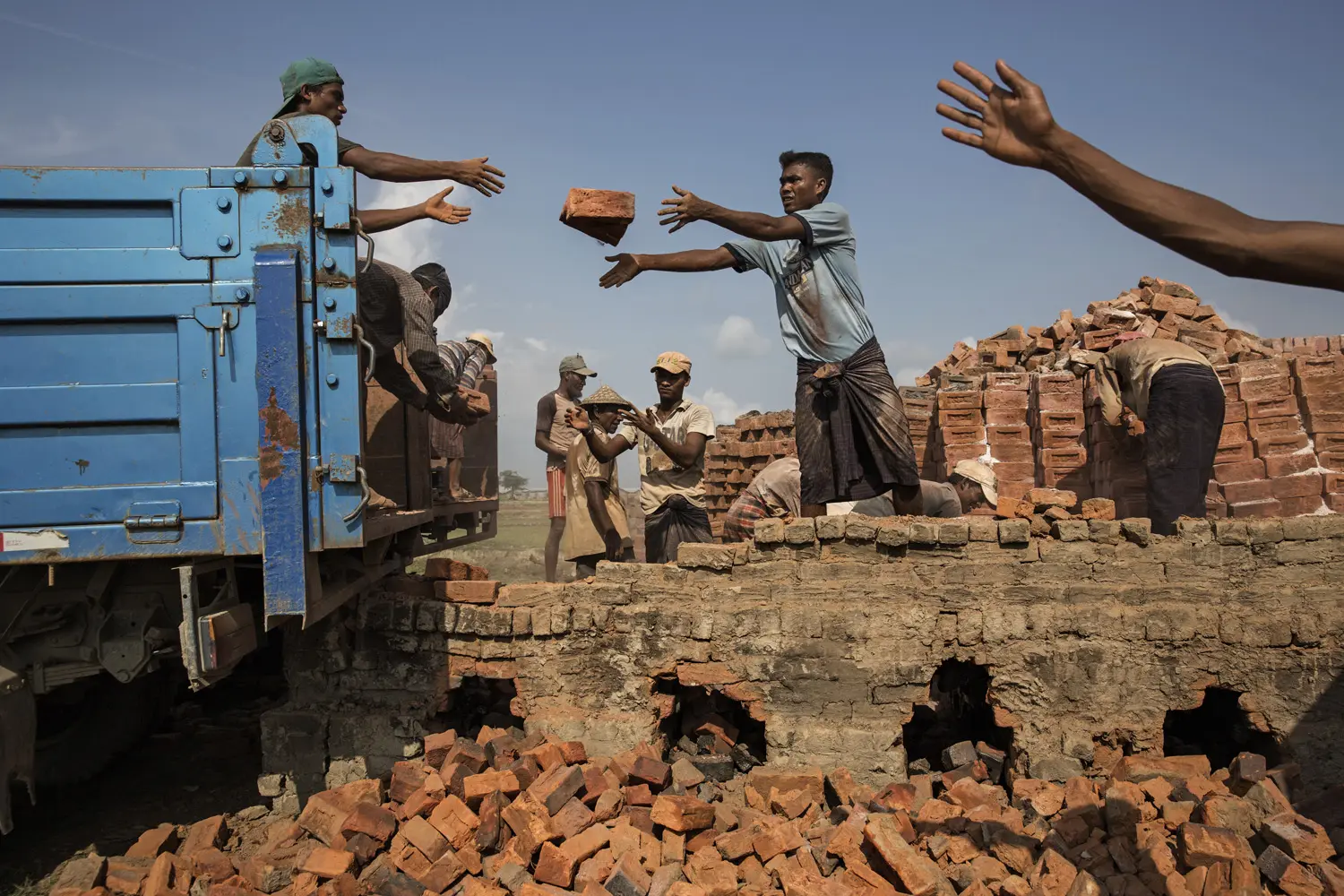
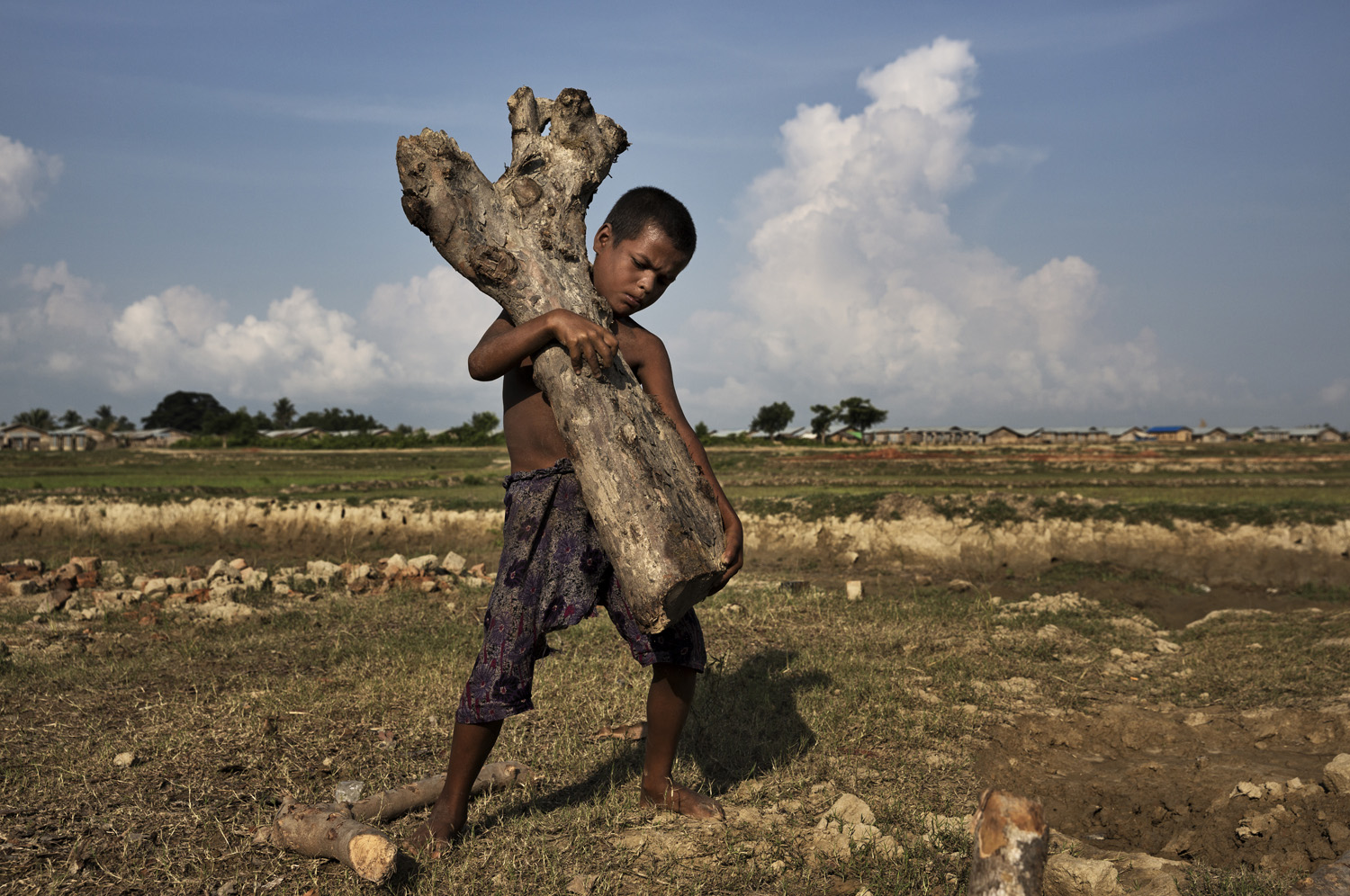
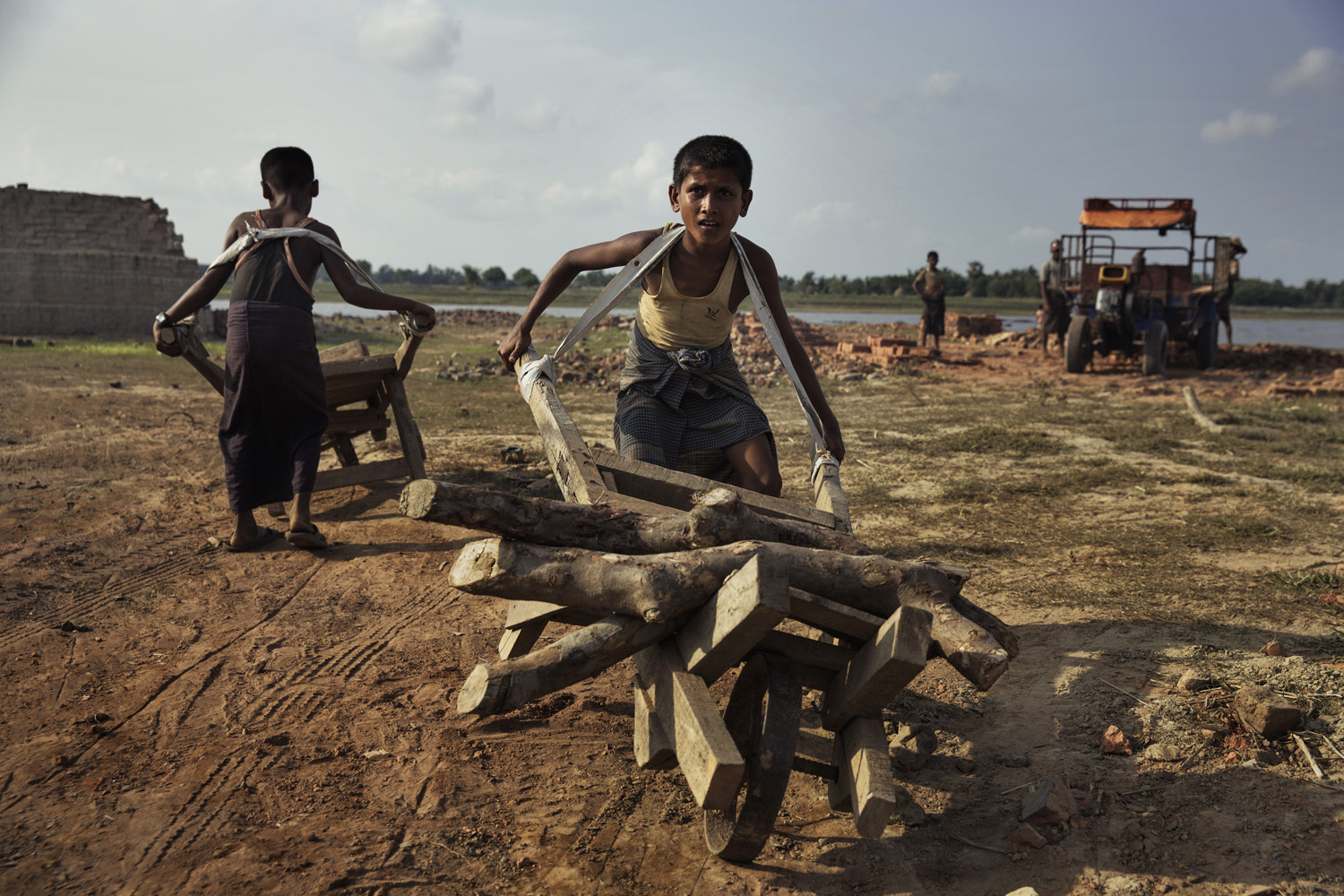
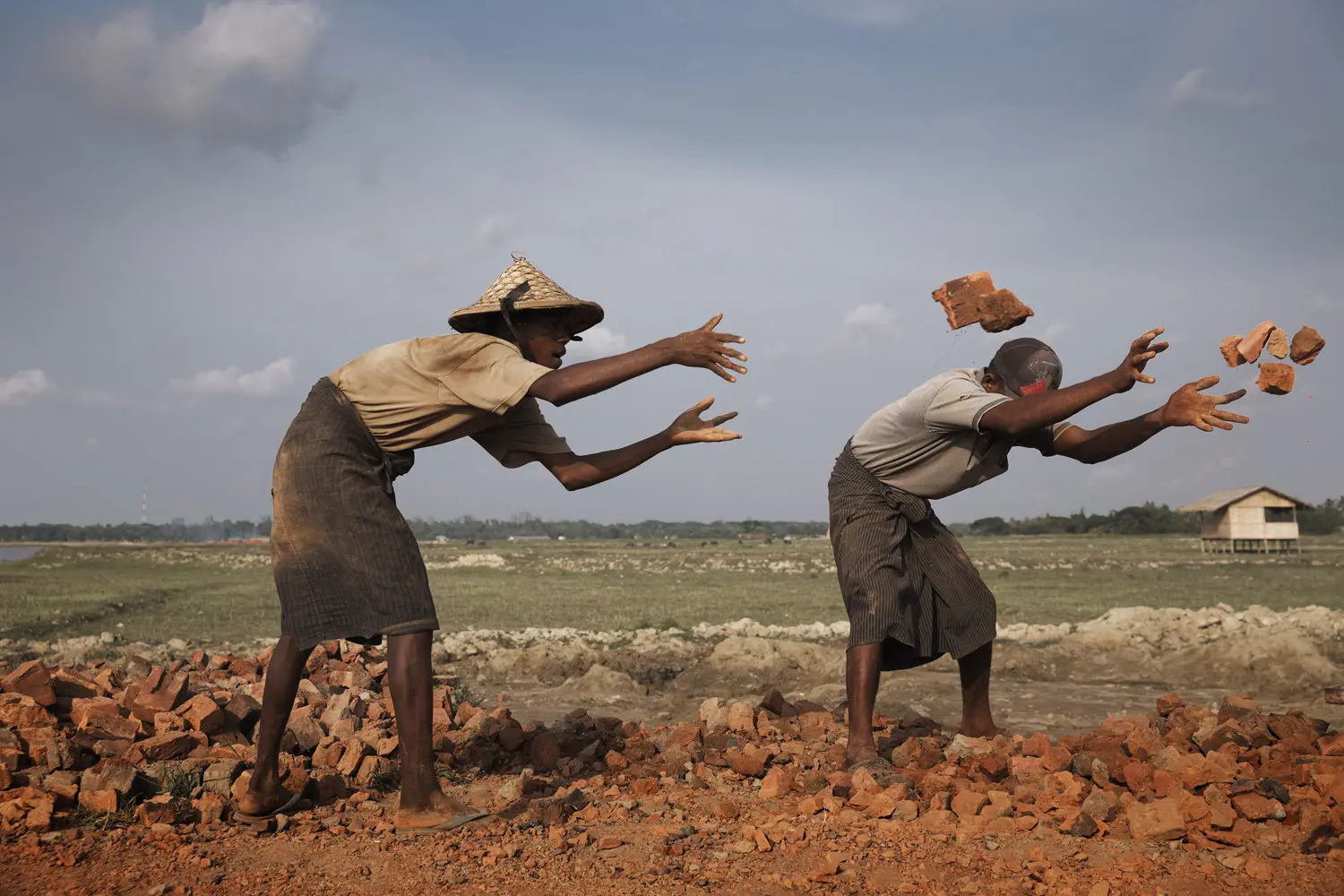
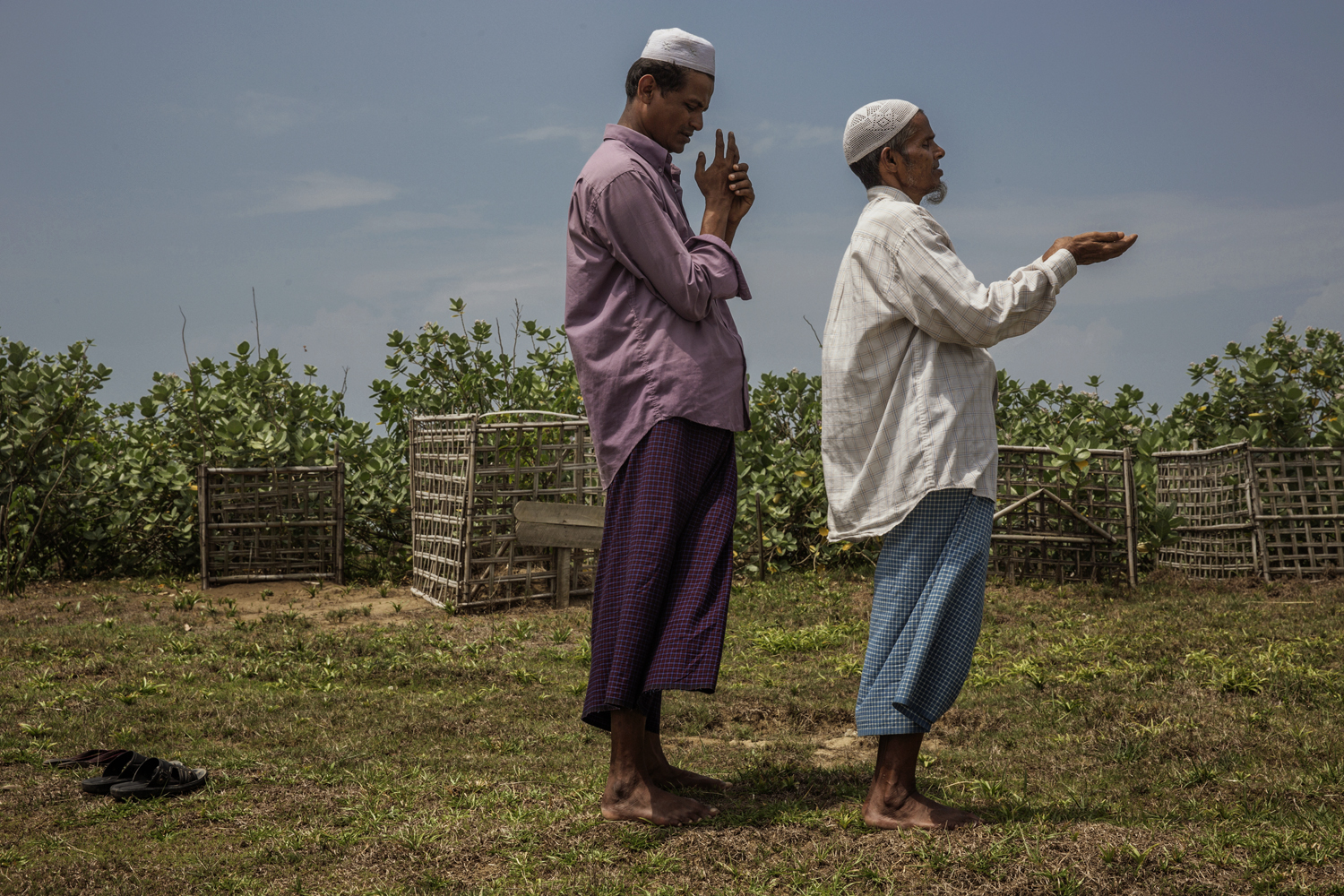
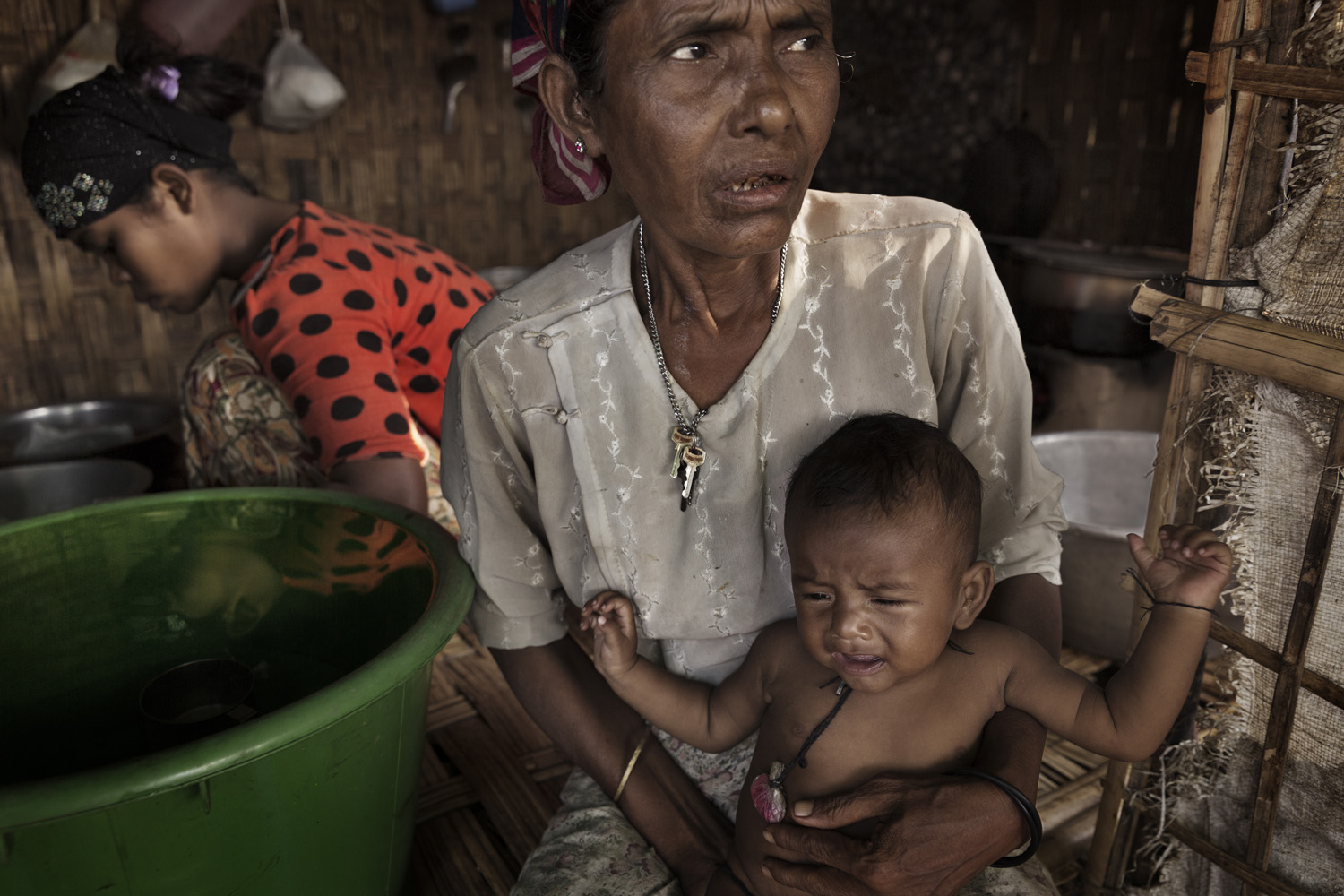
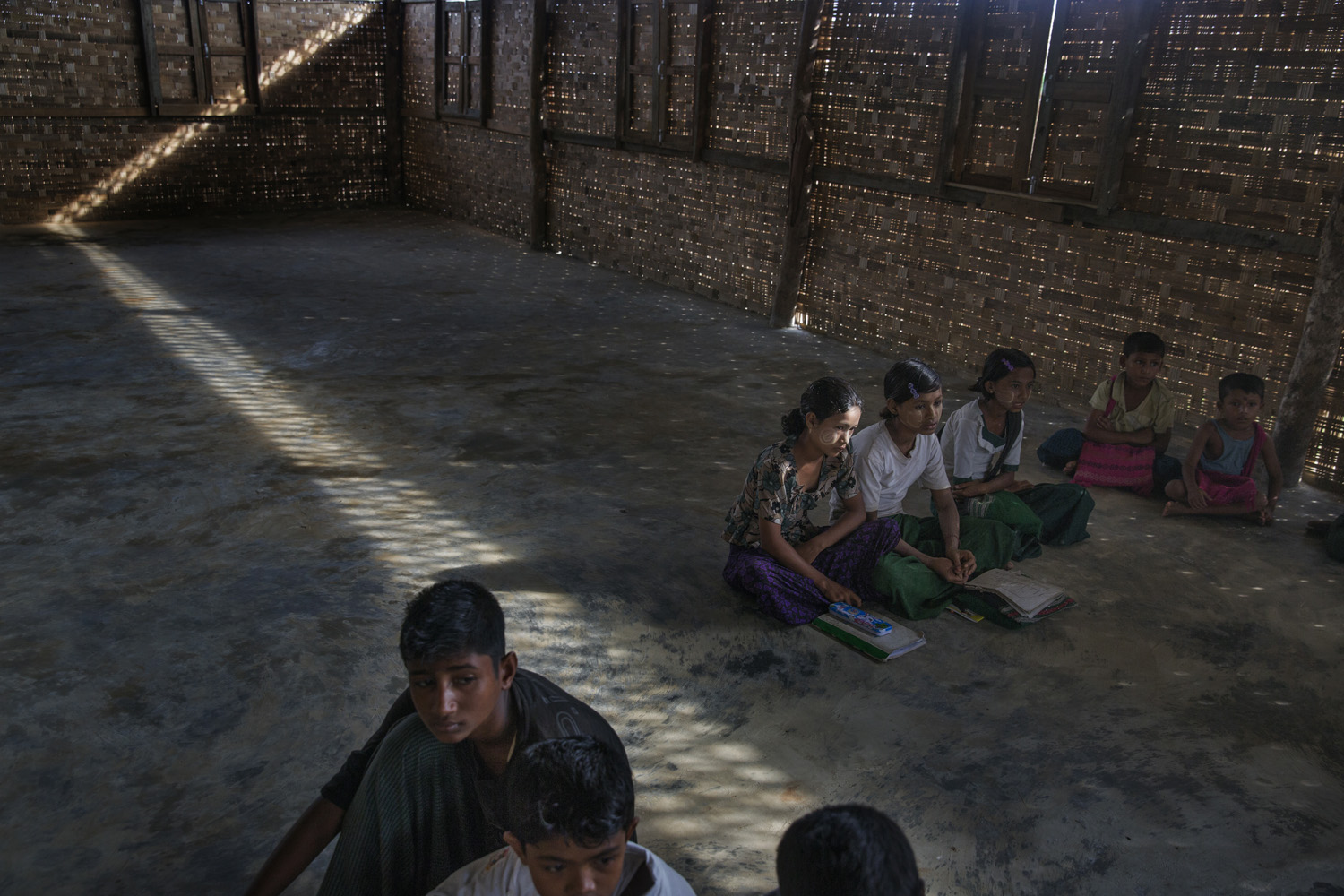
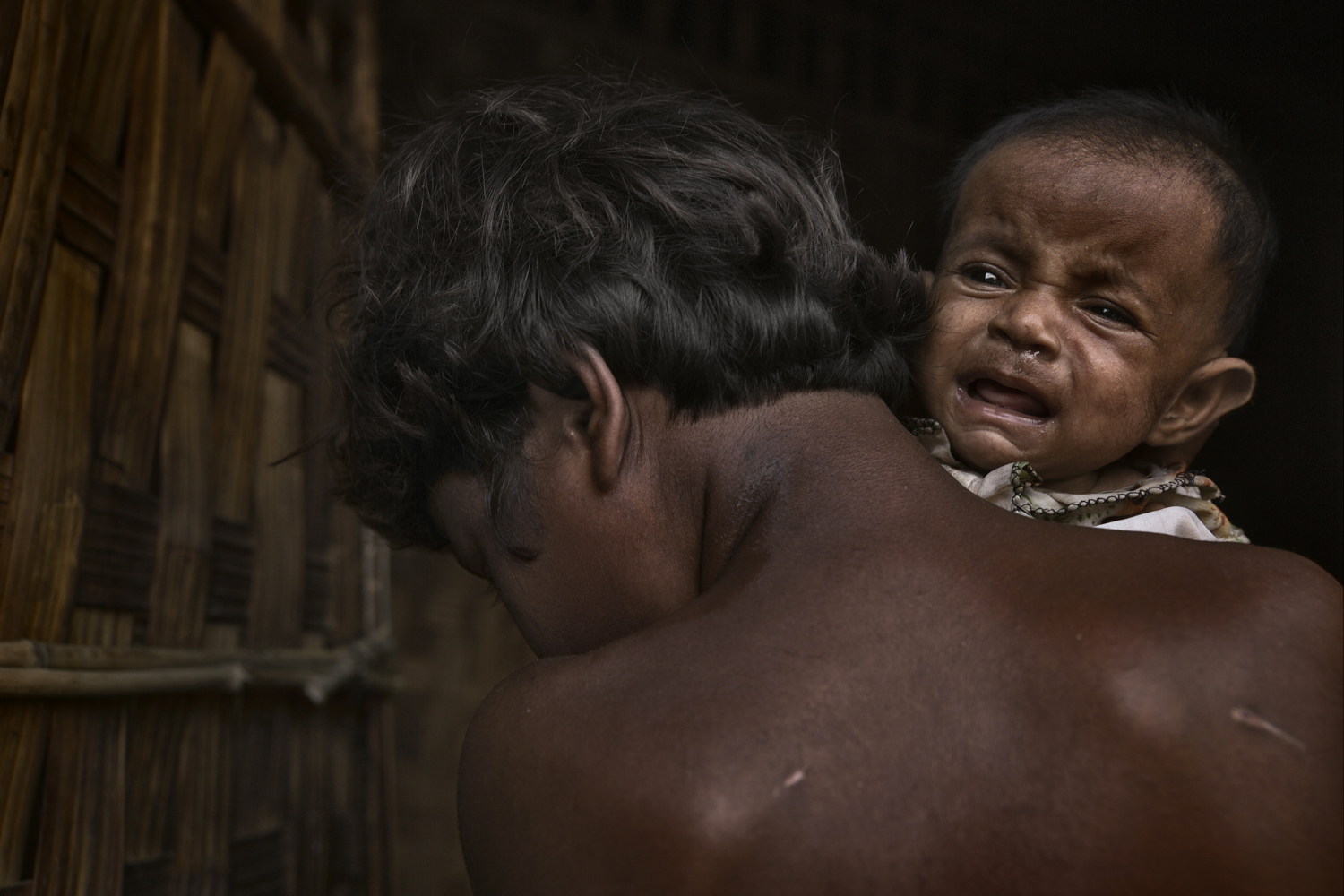
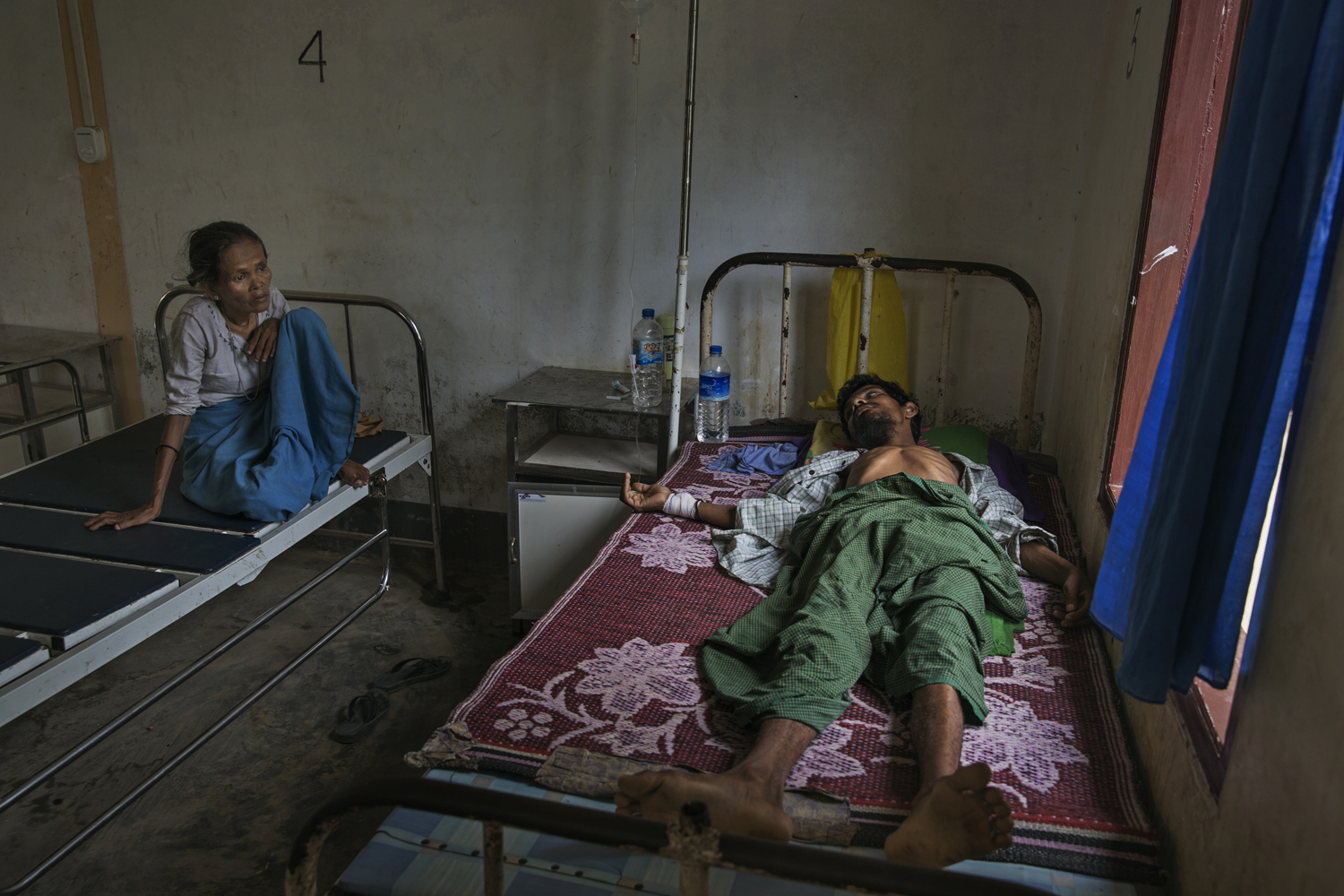
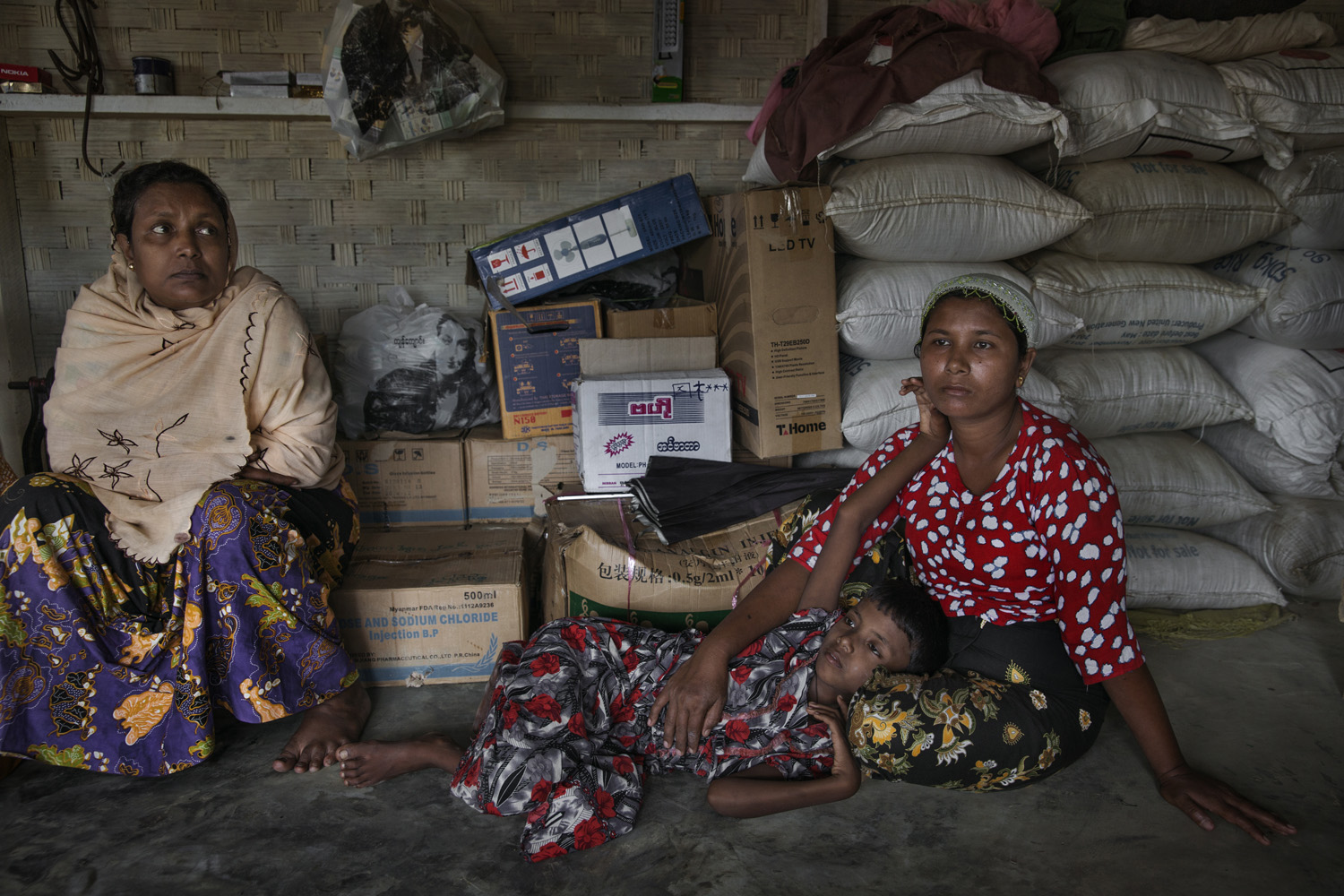
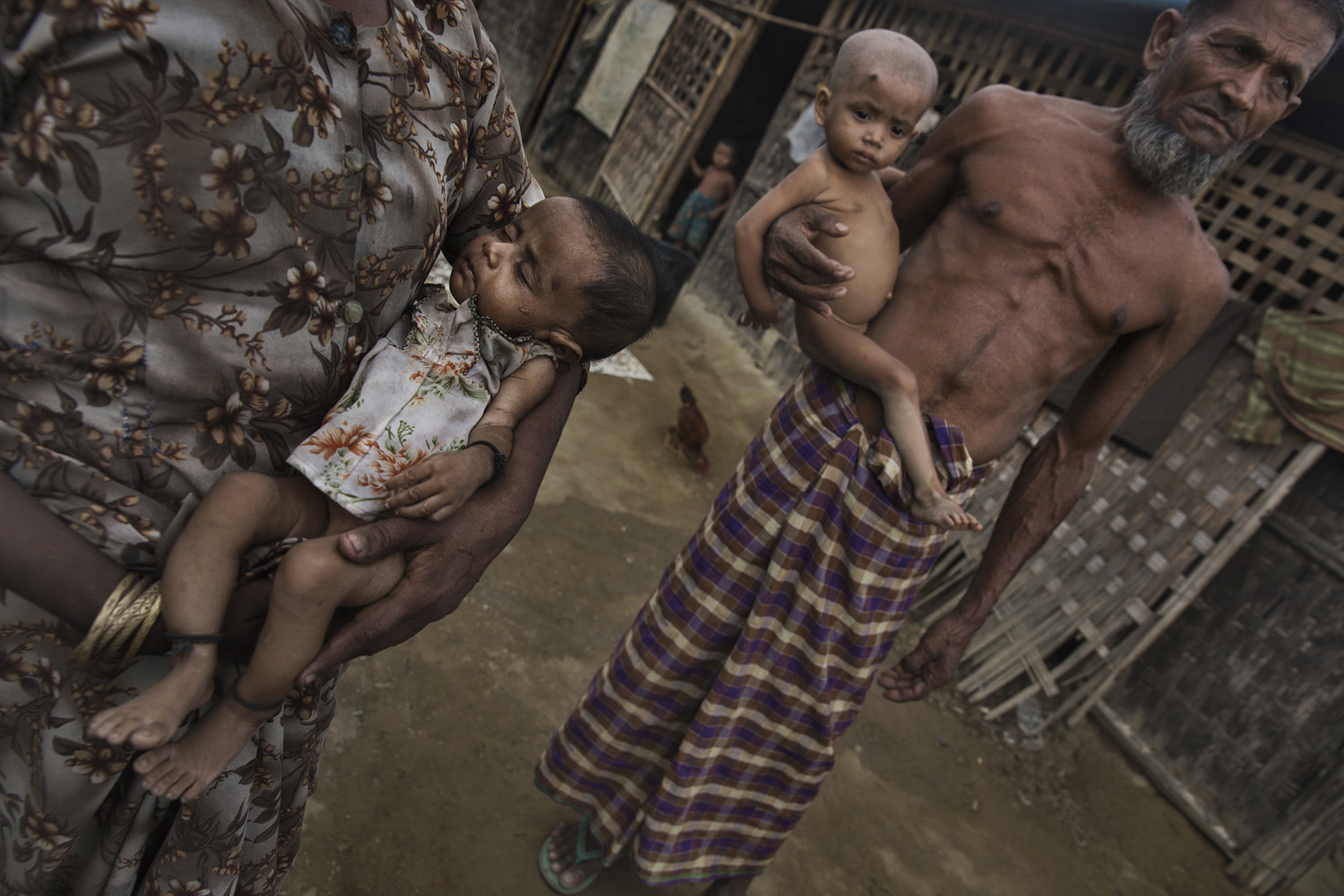
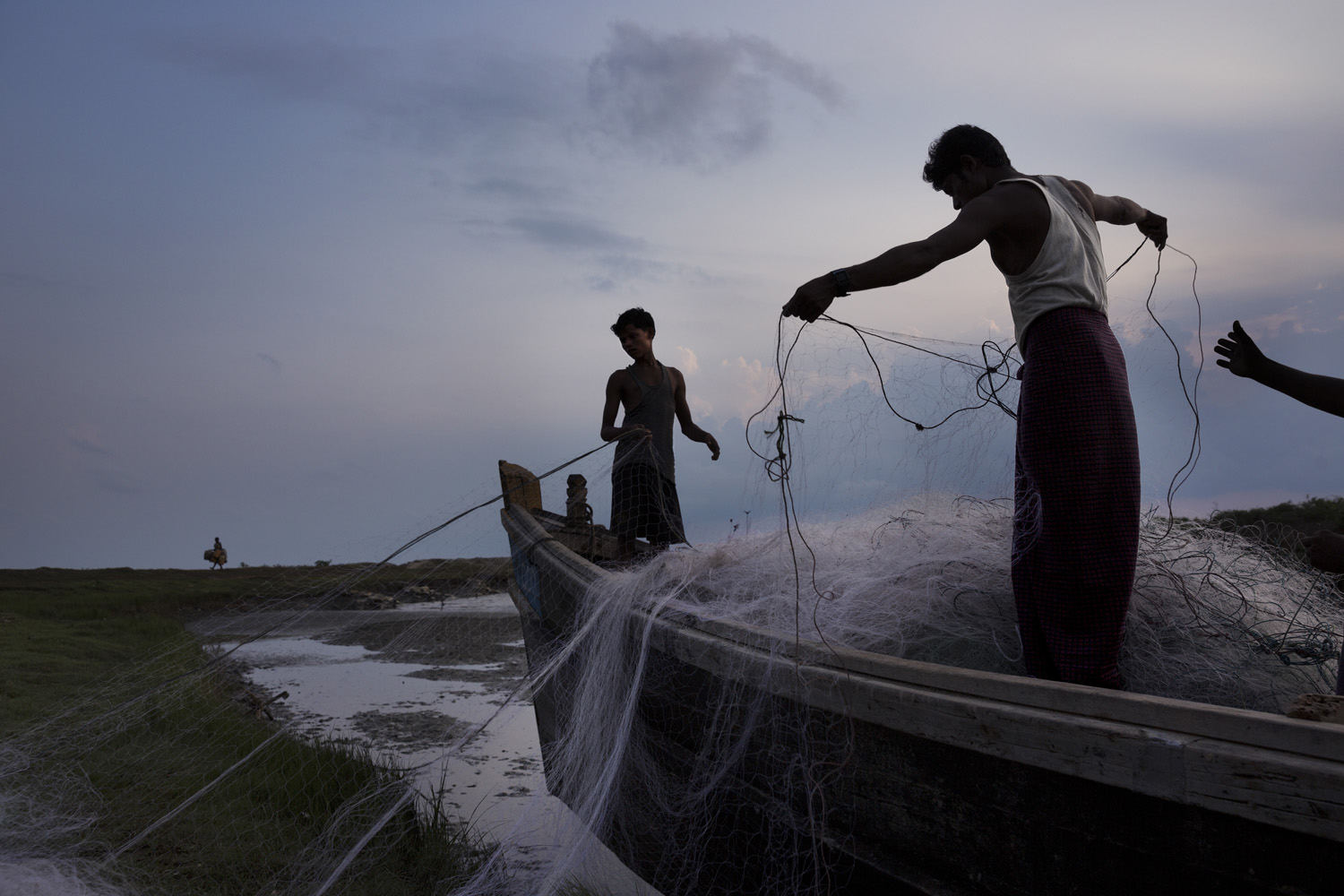
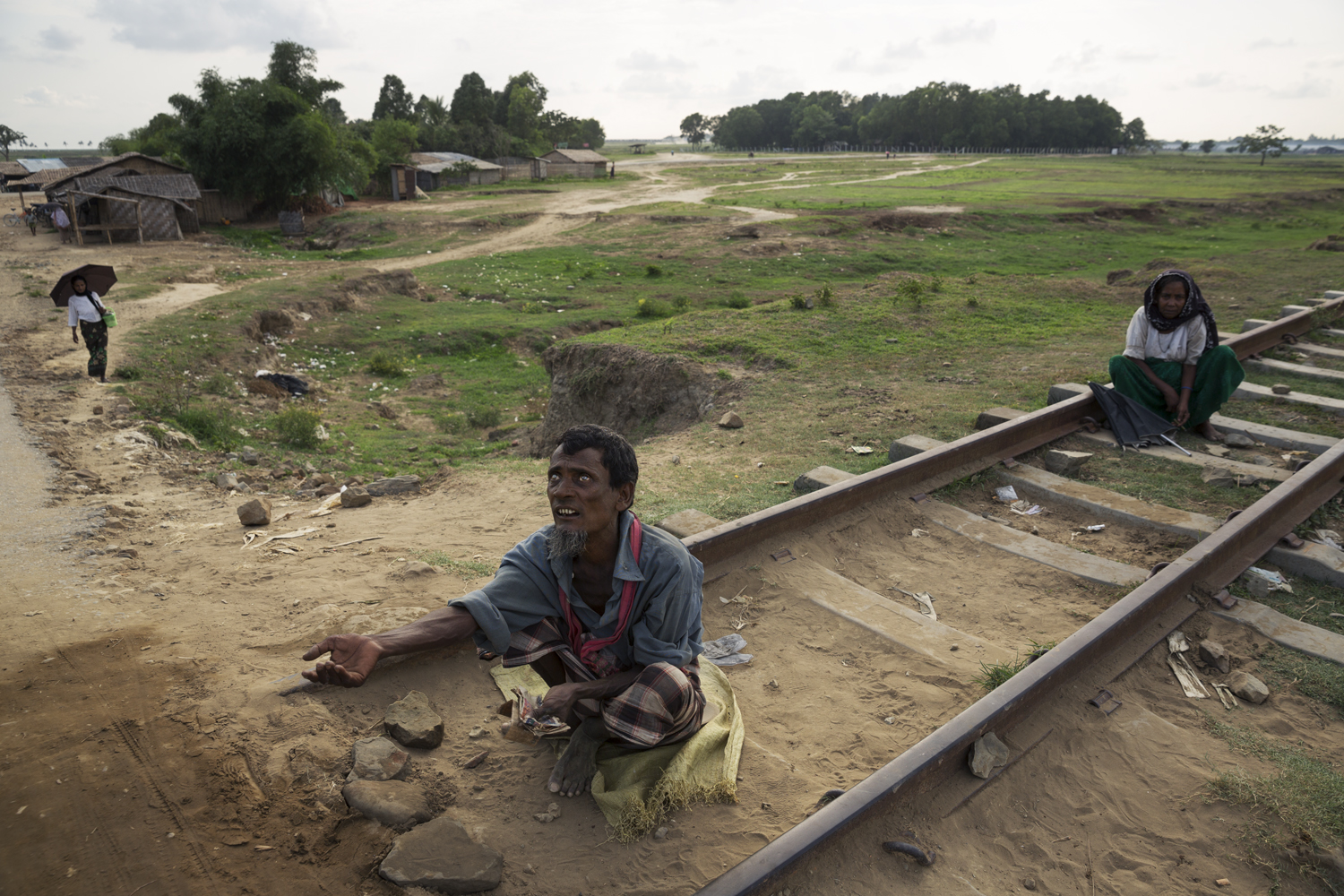
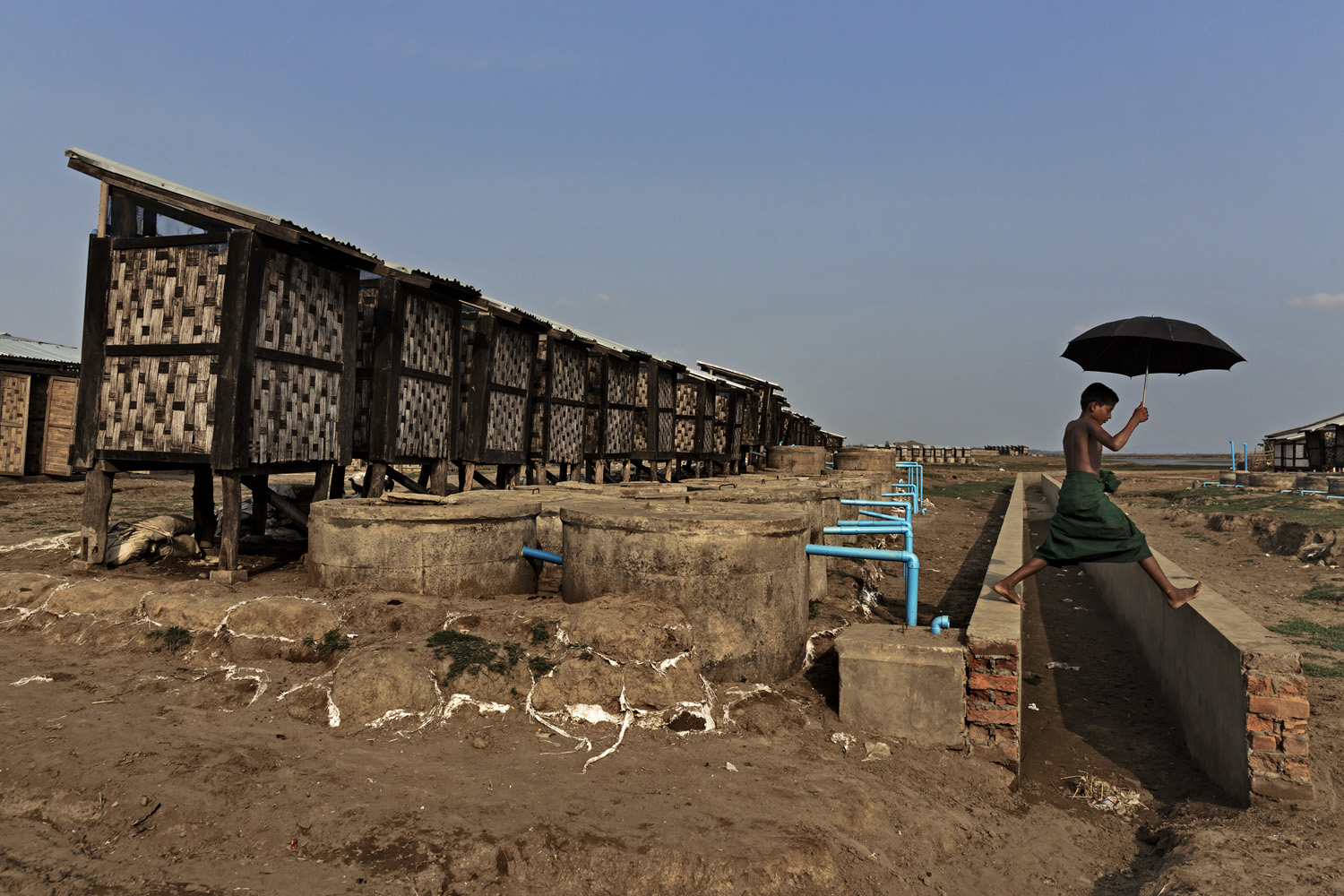
A month prior to Zaw Zaw Latt’s arrest, he had been the focus of an article in Atumashi, a magazine published by an ultra-orthodox Buddhist movement known as Ma Ba Tha. The article was highly critical of his interfaith efforts and authored by Aung Myaing, a self-described “scholar” of the Mandalay monastery where Wirathu is head abbot, and where Wirathu’s virulent sermons are copied onto DVDs and pamphlets before being distributed to monasteries and Ma Ba Tha offices across Burma. The article carried the same picture of Zaw Zaw Latt from 2013 that came to the attention of police; it was titled “Photo evidence of threat to Buddhism.”
Although formed only two years ago, Ma Ba Tha has risen to become perhaps the most well-resourced and expansive social movement in Burma. It has branches in 250 of the country’s 330 townships, and supporting its vanguard of monks are millions of lay followers. Its magazines serve as propaganda platforms that document its social-welfare activities while shooting down those it considers to be working to upset the movement. The group’s spokespersons deny it has any ill intent toward Muslims. Instead it claims to be running a “politeness training” campaign for Burma’s youth that will instill in them the virtues of Buddhism, a religion Ma Ba Tha continually touts as peaceful and altruistic.
That was once Buddhism’s reputation to be sure, but the role of monks in provoking attacks on Muslims in Burma and elsewhere has cast doubt on the religion’s supposedly inherent nonviolence. A movement similar to Ma Ba Tha has flowered in Sri Lanka, with monks from the Buddhist Power Force (Bodu Bala Sena or BBS), which was formed in 2012, using sermons and public rallies to agitate against Muslims. One BBS rally in June 2014 — in the town of Aluthgama, organized in response to the alleged assault of a monk by Muslims — triggered widespread burning and looting of Muslim homes and mosques, and the displacement of 8,000 Muslims, as well as a lesser number of Sinhalese.
Michael Jerryson, an expert on religion and violence at Youngstown State University in the U.S., says that part of the success of these movements is their ability to use Islamophobia to tap into dormant communal hostilities. Says Jerryson: “There is no religion that is inherently violent or nonviolent. In this way, these recent conflicts are a reminder that Buddhists struggle with the same social problems as people from other religions.” He adds that the dominant Western view of Buddhist monks as transcendental creatures — forever pondering on the oneness of all things — is wrong, for the act of becoming a monk “does not wash away the person’s internal struggles or behavioral patterns.”
The spread of prejudice toward Muslims has been particularly pronounced in Burma, where those seeking to reunite divided townships now find themselves branded as threats to the dominant religion and placed in the crosshairs of its radical bloc.
Myo’s decision to postpone the workshops may have put a stop to the death threats, but his situation is still precarious. Intelligence agents track him regularly, he tells TIME. “When Ma Ba Tha find out something wrong that you’ve done, they tell MI [military intelligence].” That may have been the fate of Zaw Zaw Latt, who remains in jail awaiting charges that could send him away for up to three years. Vani Sathisan, international legal adviser at the International Commission of Jurists in Rangoon, says there is also evidence signaling government acquiescence in Ma Ba Tha’s ambitions. Add in a judiciary that is both incompetent — through its lack of independence from a government still closely aligned to the military — and the environment “allows for nationalist monks to use overly broad laws to settle personal scores.”
A case in point was the sentencing of Htin Lin Oo in June to two years with hard labor. A senior member of the election-winning NLD, he had publicly stated that the attitude of ultra-nationalist monks conflicted with Buddhist notions of tolerance. As a result, he was charged with “outraging religious feelings” and jailed, having been shunned by the NLD. He appealed, but, according to Sathisan, monks protested outside the courtroom for the strongest sentence possible. The appeal was dismissed, and he remains in prison.
The NLD swept polls in November elections and will soon form a new government, but whether it has either the power or the will to stem the ultra-nationalist tide is unclear. The party, already frequently slated as “pro-Islam” by Ma Ba Tha, rejected all Muslim applicants for candidacy prior to the vote, fearful that Ma Ba Tha would intensify a campaign against the NLD that could unsettle its election prospects. After its victory, Win Htein, a member of the party’s central committee and aide to Aung San Suu Kyi, said of the disenfranchised Rohingya minority, “We have other priorities.” Any hope that the NLD will push back against groups like Ma Ba Tha is slim: the U.N. has called for the release of Htin Lin Oo, but his onetime party has kept silent.
With the climate of fear now so pervasive, interfaith workers have had to rethink their approach. Instead of discussion on belief, Myo now focuses on much more banal topics. In a village tract outside of Mandalay where Buddhists and Muslims live in an atmosphere of tension and mutual suspicion, he recently began a joint waste-disposal initiative. A prior survey of villagers had found this to be the most pressing local issue that could cut across religious boundaries and forge a degree of collaboration. Similarly subtle efforts have been under way in Rakhine state in Burma’s west, where a number of towns have seen total segregation between Rakhine Buddhists and Rohingya Muslims. One group led by ethnic Rakhine has been working in the north of the state to bring the two communities together in settings stripped of any political or religiously charged symbolism: on the football field, or in cinemas where they mingle and watch films. The group however works quietly, and demands anonymity.
But these progressive voices compete against a growing grassroots movement that finds willing audiences in Burma’s rural areas, where education is often of a poorer standard and where Buddhist villagers, lacking exposure to a more balanced discourse on Islam, are susceptible to indoctrination. One group, the Myanmar National Network, tours villages, educating children on the perils of Islam. An online video shows the group instructing young children to list violent acts committed by ISIS in Syria, and to repeat the refrain that Islam is responsible.
These forces work against the notion of equal rights for all that Burma’s transition should usher in. The challenge they pose to the NLD, already floundering under pressure from groups like Ma Ba Tha, is therefore considerable, and the jailing of those who have criticized the movement indicates that no pillar of authority in Burma is willing to stand up against this force.
Myo, for one, never told police about the death threats. “If I did,” he tells TIME, “they would just pressure me to stop my work on the grounds of security.” But the chilling effect it has had on his colleagues concerns him more. “The worst thing is that it scares people away from interfaith work,” he says. Already familiar with the dark side of fanatical Buddhism, they must now look for more subtle ways to stem this tide. But with the country’s democratic leadership failing to come to their aid, it’s a battle they may need to go at alone.
More Must-Reads from TIME
- How Donald Trump Won
- The Best Inventions of 2024
- Why Sleep Is the Key to Living Longer
- Robert Zemeckis Just Wants to Move You
- How to Break 8 Toxic Communication Habits
- Nicola Coughlan Bet on Herself—And Won
- Why Vinegar Is So Good for You
- Meet TIME's Newest Class of Next Generation Leaders
Contact us at letters@time.com